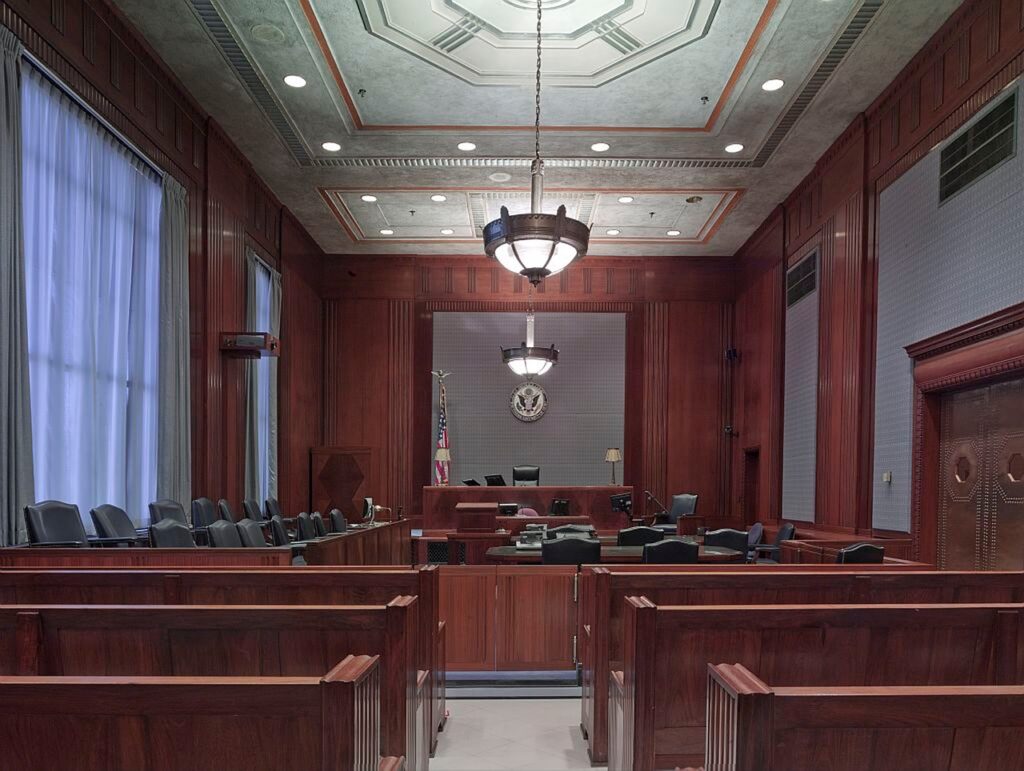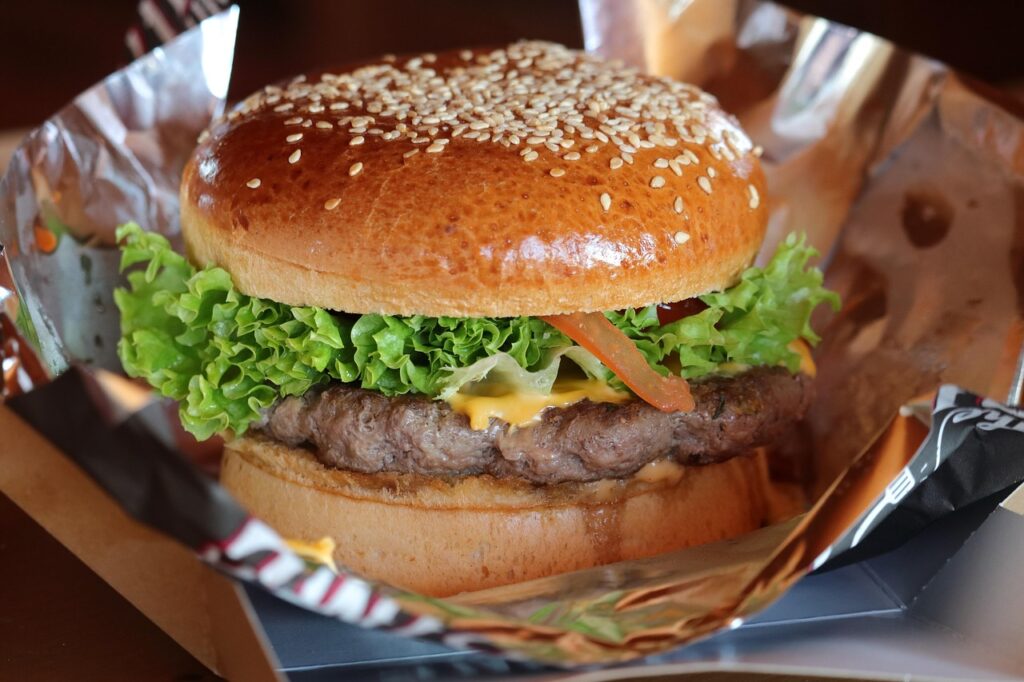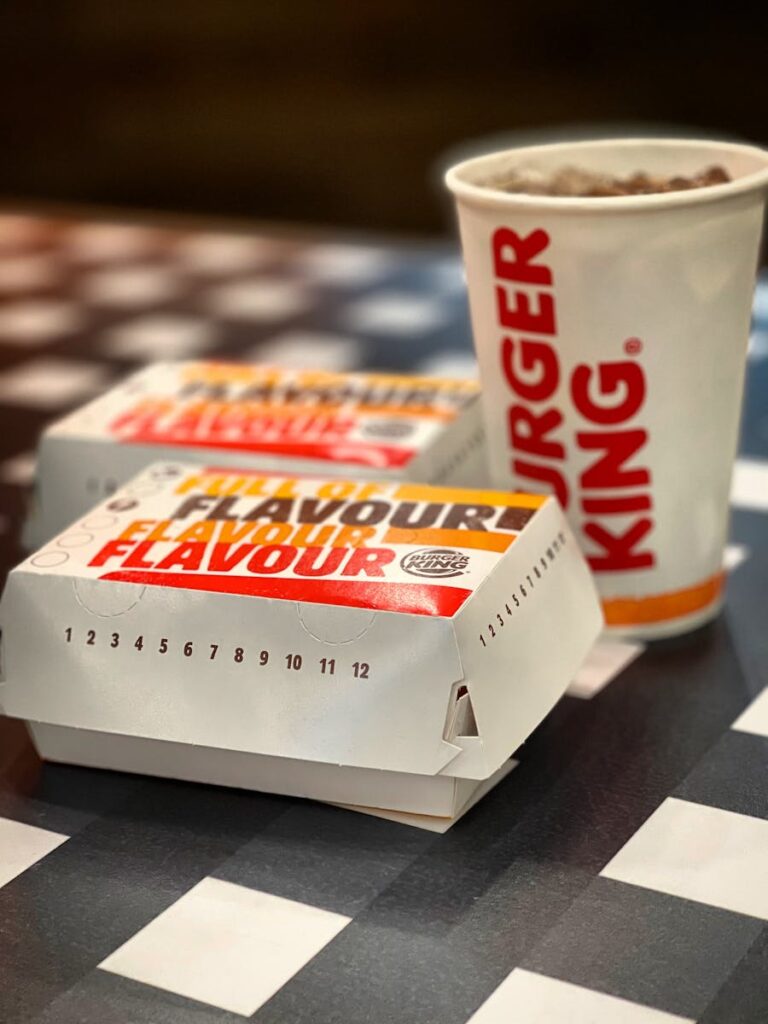
Mega Verdict: $7.8M Award in Burger King Slip-and-Fall Case
A Burger King franchisee operating in Florida has been ordered to pay nearly $8 million in damages to a customer who alleged he slipped in one of its restaurants and suffered injuries requiring surgery.
The substantial verdict, reached by a Broward County jury earlier this year, followed a lawsuit filed by Richard Tulecki against Seven Restaurants, the operator of the franchise location in Hollywood, Florida. Tulecki claimed he slipped on a wet foreign substance near the restroom in July 2019, resulting in severe injuries.
Court documents indicate Tulecki, now 48, suffered lower back injuries that necessitated surgery. His legal team stated that the surgery was complicated by a post-operative perforated colon, which developed after he experienced constipation from prescribed opioid painkillers and used an over-the-counter enema.

The lawsuit, initiated in January 2021, accused the franchisee of negligence. It alleged that Seven Restaurants breached its duty of care by failing to ensure the area and floor of the business were free and clear of any hazards, thereby exposing customers to a dangerous condition.
After hearing the case, the jury sided with Tulecki. On May 11, they reached a verdict awarding him $7.81 million in damages. This figure included compensation for medical expenses, lost earnings, and significant amounts for both past and future pain and suffering.
The jury specifically awarded Tulecki $693,345 for past medical expenses and $2,500 for future medical expenses, totaling $695,845 in medical costs. For past pain and suffering, the award was $995,760, while future pain and suffering was set at $2,768,160.

Legal Showdown: Debating Liability and $3M Lost Earnings Claim
The largest single component of the award was for lost earnings, with the jury granting $350,000 for past lost wages and a substantial $3 million for future lost earnings. These amounts collectively brought the initial jury award to $7,809,765, aligning with the reported $7.81 million figure.
The total damages awarded to Tulecki were later adjusted by the court to $7.68 million. This reduction accounted for medical expenses that Tulecki’s insurance had already covered, reflecting the principle that the plaintiff should not receive a double recovery for those specific costs.
Tulecki’s attorneys, H. Ross Zelnick and Miguel A. Amador of Ginnis, Krathen & Zelnick, hailed the verdict as a major victory. In a press release, they described it as one of the largest slip-and-fall verdicts in Florida’s history, framing it as a triumph particularly significant in the context of Florida’s recently enacted limits on tort lawsuits.
Attorney H. Ross Zelnick stated that the verdict sends a “strong message that corporate greed will not be tolerated in Broward County.” He added that their client left the courthouse with confidence in the civil justice system, feeling that his voice had been heard. The firm notably characterized the verdict as a “whopper” verdict.
Read more about: The Hidden Cost of ‘Appreciation’: Why Empty Gestures and Low Pay Lead to Expensive Exits
Plaintiff’s Past: From Insurance Fraud to Serial Litigation
The plaintiff’s legal team also highlighted the challenge in the case, mentioning that the insurance company involved had initially offered only $200,000 to settle the case. Miguel A. Amador, described as a top Fort Lauderdale slip and fall lawyer, indicated that they chose not to negotiate with what he termed an “unreasonable insurance carrier,” opting instead to have their day in court.
A crucial factor in securing the substantial verdict, according to Tulecki’s attorneys, was successfully linking Tulecki’s slip and fall incident to his subsequent gastrointestinal issues. They emphasized their decades of trial experience and ample resources, stating that these allowed their firm to compete effectively against “billion dollar insurance companies.
In the wake of the verdict, Seven Restaurants, the franchise operator, filed a motion for a new trial on May 19. In legal filings supporting their motion, the defense attorneys alleged that Tulecki’s legal team had presented “virtually no evidence” to demonstrate that the restaurant’s management had prior knowledge of the purported “foreign substance” on the floor that caused the fall.
Read more about: Let’s Talk About That Viral Whited-Out Gift Card Scam — It’s Bigger Than You Think!

Seven Restaurants’ attorneys also challenged the size of the award, particularly the $3 million granted for lost future earnings. They argued in a court filing that this amount was “clearly excessive.” The defense contended that this award assumed Tulecki, currently 49, would continue to earn his pre-injury income of approximately $70,000 annually for nearly 43 more years, until the age of 91. They argued the award should be reduced to reflect lost earnings only until a more conventional retirement age, such as 65.
Despite the challenge from the defense, the trial judge denied Seven Restaurants’ motion to set aside the award in July, allowing the jury’s decision to stand. This judicial decision was a key development following the initial verdict and the subsequent challenge.
The case garnered headlines around the world, drawing attention to the potentially high stakes of personal injury litigation, particularly in the fast-food sector. It serves as a notable example within Florida’s personal injury landscape, where, as the context suggests, disputes over seemingly minor incidents can escalate into multi-million dollar legal battles involving businesses, plaintiffs, attorneys, and a network of medical and insurance providers.

The context of this lawsuit includes details about the plaintiff’s prior legal history, which surfaced during the proceedings. Court records indicate that the Burger King attorneys were aware of earlier allegations against Tulecki, information revealed during a deposition in the civil case. In this deposition, Tulecki reportedly offered alternating accounts, either stating he did not remember the details of a previous criminal case well or claiming the allegations were untrue.
Records show that in mid-May 2019, just a couple of months before the incident at Burger King, Tulecki pleaded no contest in Broward County Circuit Court to two misdemeanor counts of petit theft. These counts stemmed from an original felony arrest on insurance fraud charges, concluding a case that had begun in 2015.
That earlier case involved a collision between a U-Haul truck and Tulecki’s truck in Pompano Beach. An affidavit from the state Department of Financial Services’ Bureau of Insurance Fraud had alleged that Tulecki staged the collision and committed insurance fraud, both characterized as second-degree felonies. The affidavit claimed Tulecki sought money for truck repair or replacement and enlisted another person, described as a “cooperating witness,” to collide with his truck.
Read more about: 15 Years on Sick Leave, £54k a Year, and Then a Lawsuit? Inside the Case of the IT Worker Who Sued IBM for Not Getting a Pay Rise While Off Work
The affidavit further alleged that Tulecki “feigned” injuries following this staged collision and subsequently retained an attorney. Progressive, identified as Tulecki’s no-fault carrier, reportedly paid $5,113 in relation to this incident. Progressive was also billed for $13,605 in medical care, but this was reportedly turned away as Tulecki’s out-of-state policy did not apply in that instance, according to an affidavit.
In the criminal case related to these allegations, Tulecki was represented by a public defender. While he did not admit guilt by pleading no contest to the petit theft charges, he did not contest them. He was sentenced to 24 months of probation and ordered to pay restitution. Adjudication of guilt was withheld, meaning he was not formally convicted for these offenses.
Responding to inquiries about the relevance of this history, Miguel Amador, one of Tulecki’s attorneys in the Burger King case, stated to Florida Trend that the two matters were “completely unrelated.” Despite this assertion, the defense in the Burger King case was aware of the earlier fraud allegations through the deposition process.
Beyond the criminal matter, Tulecki was also involved in another civil lawsuit in the period leading up to the Burger King incident. In March 2019, four months prior to the slip and fall, Tulecki filed a lawsuit against a Best Western hotel in St. Augustine. He alleged that after staying at the hotel, he woke with bites and welts across his body caused by bed bugs.
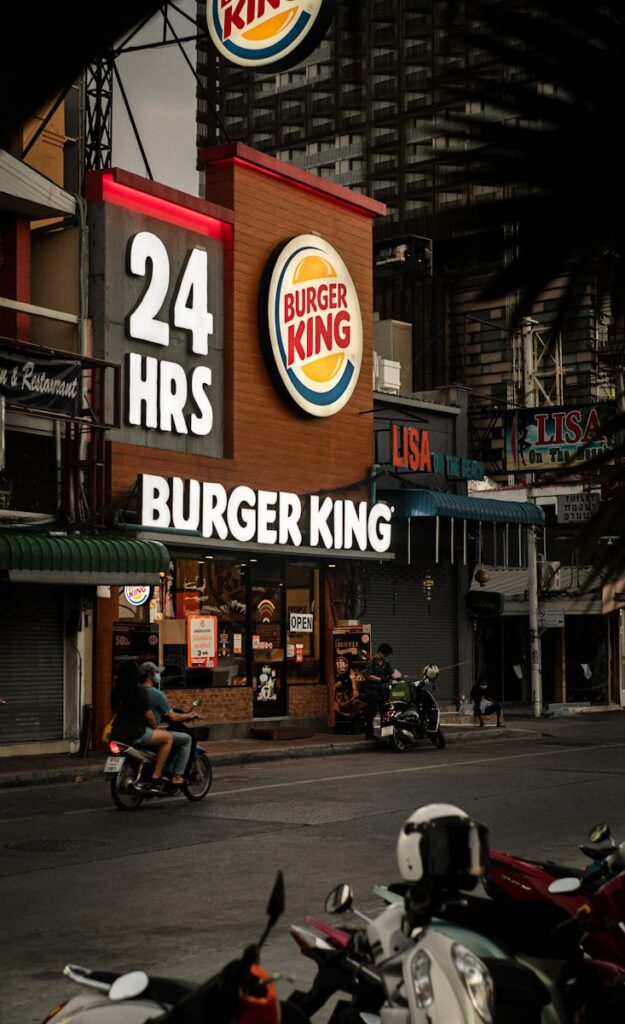
Fast Food Legal Landscape: From E. Coli to $8M Verdicts
Tulecki was also represented by the firm of Ginnis, Krathen & Zelnick in the bed bug lawsuit, which was filed in late 2020. That particular case was later settled for an undisclosed sum, according to the provided context. This history illustrates the plaintiff’s prior engagements with the legal system for personal injury claims before the high-profile Burger King case.
The Burger King slip and fall case stands out as a significant example within the broader category of injury lawsuits targeting fast food chains. The context details several other notable cases, including the devastating Jack in The Box E. Coli outbreak in 1993, which resulted in numerous illnesses, four deaths, and over $50 million in settlements, dramatically altering food safety standards.
Other incidents cited include a 2016 lawsuit against Jack in The Box by an employee who suffered severe burns due to alleged inadequate safety measures, leading to a substantial settlement. The widely known McDonald’s hot coffee lawsuit from 1994 is also referenced, where a jury awarded a 79-year-old woman $2.86 million after a severe burn, influencing how hot beverages are served.
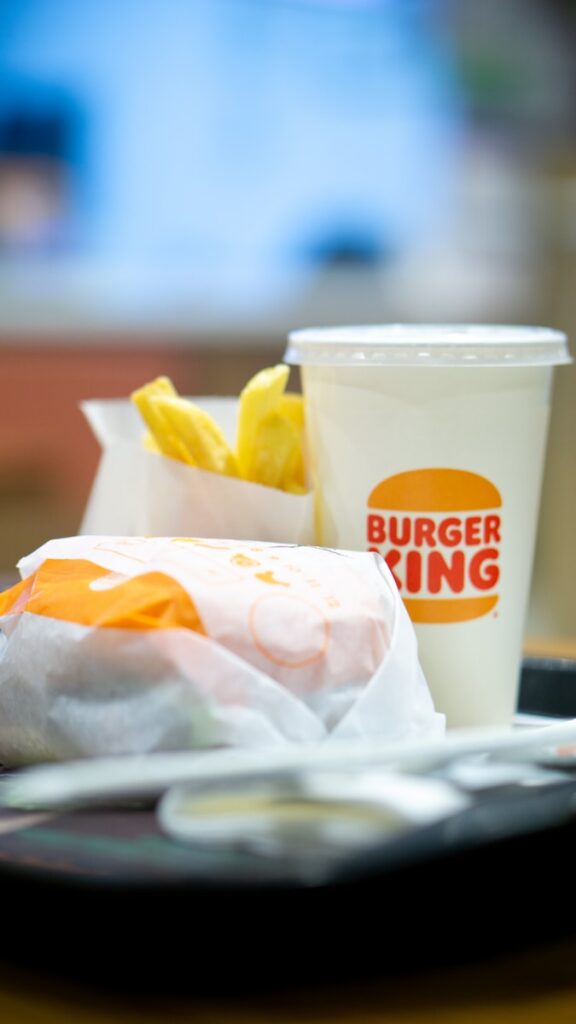
The list of significant cases continues with a 2012 award of $8 million against KFC in Australia for Salmonella poisoning that left a child severely disabled, underscoring the grave effects of foodborne illnesses. A 2009 Burger King slip and fall case resulted in a $2.2 million jury award, emphasizing the need for safe premises.
A bizarre 2008 Subway incident involved a man finding glass in his sandwich, leading to cuts and a lawsuit where Subway was found liable. A separate Jack in The Box slip and fall in 2012 resulted in a $13 million lawsuit win for a man who suffered a severe head injury, highlighting the potential for life-altering consequences from falls.
A 2015 Norovirus outbreak at a Chipotle outlet sickened over 200 customers and led to lawsuits, severely impacting the brand’s reputation and stressing employee health and hygiene. Even an elaborate hoax, like the alleged finger in Wendy’s chili in 2005, is noted for its ability to cause media frenzy and damage a brand’s sales and reputation.
Finally, a 2014 Jack in The Box drive-thru accident, where a woman was injured after being pinned by a car, resulted in a settlement for an undisclosed amount, bringing attention to safe architectural design in fast food establishments.
These cases collectively paint a picture of the varied types of incidents and the significant legal and financial outcomes possible in fast food environments. They reinforce the point made in the context that fast food chains are areas with potential for injuries to both customers and employees.
The legal actions stemming from these incidents have, in many instances, led to drastic changes within the industry, prompting improved safety standards, enhanced training programs, and stricter quality control measures. However, the high-value verdicts and settlements underscore that failures in these areas can lead to catastrophic injuries and considerable legal and financial repercussions.
The nearly $8 million verdict in the Florida Burger King slip and fall case is a potent reminder of the potentially high costs associated with premises liability claims in the fast-food sector. Despite challenges regarding the evidence of the franchisee’s knowledge of the hazard and the magnitude of the lost earnings award, the jury’s decision and the subsequent denial of a new trial motion stand as a significant development.

The case highlights the complex dynamics of personal injury litigation, especially when severe injuries are alleged following an incident on a business’s property. It illustrates the lengths to which legal teams will go to pursue damages they believe their clients are due, and the significant financial exposure faced by businesses, including franchise operators, when juries find them liable for damages resulting from alleged negligence.
Related posts:
10 Groundbreaking Cases of Injury Lawsuits in Fast Food Chains
Burger King will make $8M payout to customer who slipped and fell
A Burger King franchisee was ordered to pay almost $8 million to a customer who slipped in one of its restaurants and needed back surgery

